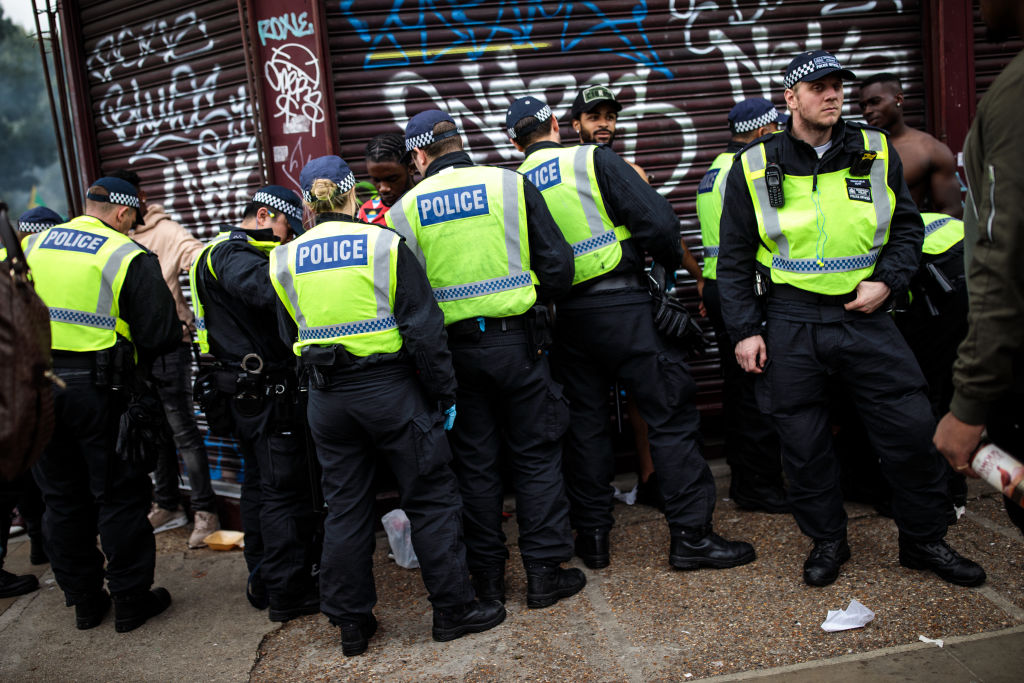Given recent stories about the police putting your door in if you have more than six people over on Christmas day, it seems almost quaint to be talking about Stop and Search as an abuse of state power. Yet the release of statistics this week that show black people are nine times more likely to have this power used against them in the street, ought to give us pause for thought.
Stop and Search is an unavoidably intrusive state activity. You can be stopped by the police if they have a reasonable suspicion that you have illicit items in your possession, such as guns, drugs or equipment to be used in a burglary. When stopped, you are asked to account for your movements and a search of your outer clothing takes place.
Most people in the UK will never have experienced police officers acting in this way, or had their liberty interfered with by the state. Which makes sense, considering that most people don’t routinely carry drugs, burglary equipment or go about armed with bladed weapons. But this equally applies to people who aren’t white – and who are currently being stopped at highly disproportionate rates in certain parts of the country. This is why it is so important that we see the wood for the trees when looking at the disproportionate use of stop and search on black men. The confluence of sharply increasing violent crime and the imported Black Lives Matter movement – with its emphasis on the lethal relationship between young black men and law enforcement – has made this debate even more relevant.
First, to be clear: the police response which has led to the increased use of stop and search is an operational reaction to the increased use of bladed weapons. No one serious disputes the appalling rise in the use of knives or sharp implements over the last ten years. Police recorded crime statistics show a 51 per cent increase in such offences since 2010. The remorseless rise in this brutality has coincided with austerity cuts that decimated problem-solving, intelligence-gathering community policing in the highest crime areas of the country – mainly located in a few London boroughs.
The key police response in London and across England has been to increase stop and search in an effort to target criminals who carry knives and – significantly – to use legislation that does not require police suspicion in certain areas for a limited period. These ‘section 60’ stops have increased hugely over the last two years as borough commanders come under massive political and organisational pressure to contain unprecedented violence. Using a ‘section 60’, when the police believe it is likely violence will occur on the basis of intelligence, any person can be detained and searched without a specific reason.
These stops are most likely to occur in places with a well-established reputation for violent crime. The ‘available’ population to search at times where crime is predicted to happen, coupled with the profile of likely offenders and victims, will mean that young black men in, say, Haringey are much more likely to be stopped and searched than female pensioners. That is not racial profiling, it’s common sense. It could also save lives. Young black men are dramatically more likely to be victims – and perpetrators – of both knife and gun crime in London.
Until the recent belated surge in police recruitment, London’s troubled postcodes risked being marooned in a sea of violence. Homicides in London hit a ten-year high last year with the majority of incidents involving knives and gangs. If you were the parent of a black teenager in London and not, say, a white liberal activist academic or well-heeled pressure group, you might be praying for more stop and search, not less.
Whatever your views on stop and search as an operational tactic, it’s hard not to see its increase as the result of some deeper societal failures. The police are not to blame for a growing number of people resorting to extreme violence in the face of very little provocation. They didn’t invent postcode gangs or county lines drug dealing. They just too often deal with the miserable consequences and try to hold the line against the inexorable outcome of poverty, neglect and low aspiration. Their tactics are relentlessly filmed and often edited in service of a narrative of racist state oppression. And yes, they sometimes get it wrong.
Black men being stopped and searched on the streets is the end of a process that should begin with early intervention, prevention and diversion from the start. And that process ought to be informed not by what makes a small amount of people turn bad, but by what keeps the majority of their peers on the straight and narrow. Across all ethnicities this might produce uncomfortable conversations about, for example, the importance of parenting and the impact of the presence or absence of positive male role models. Maybe it’s just simpler to crank up the Stop and Search stats and take the hit.
Law enforcement is under attack as never before. In a democracy, particularly one that is exercising huge discretionary power to control the liberty of its citizens right now, it’s right and proper to hold the state to account for how and why it uses policing to control crime. But there are grave risks in politicising crude statistics without the inconvenience of context. Disproportionality is not a crime.
Ian Acheson was Director of Community Safety at the Home Office for South West England.







Comments